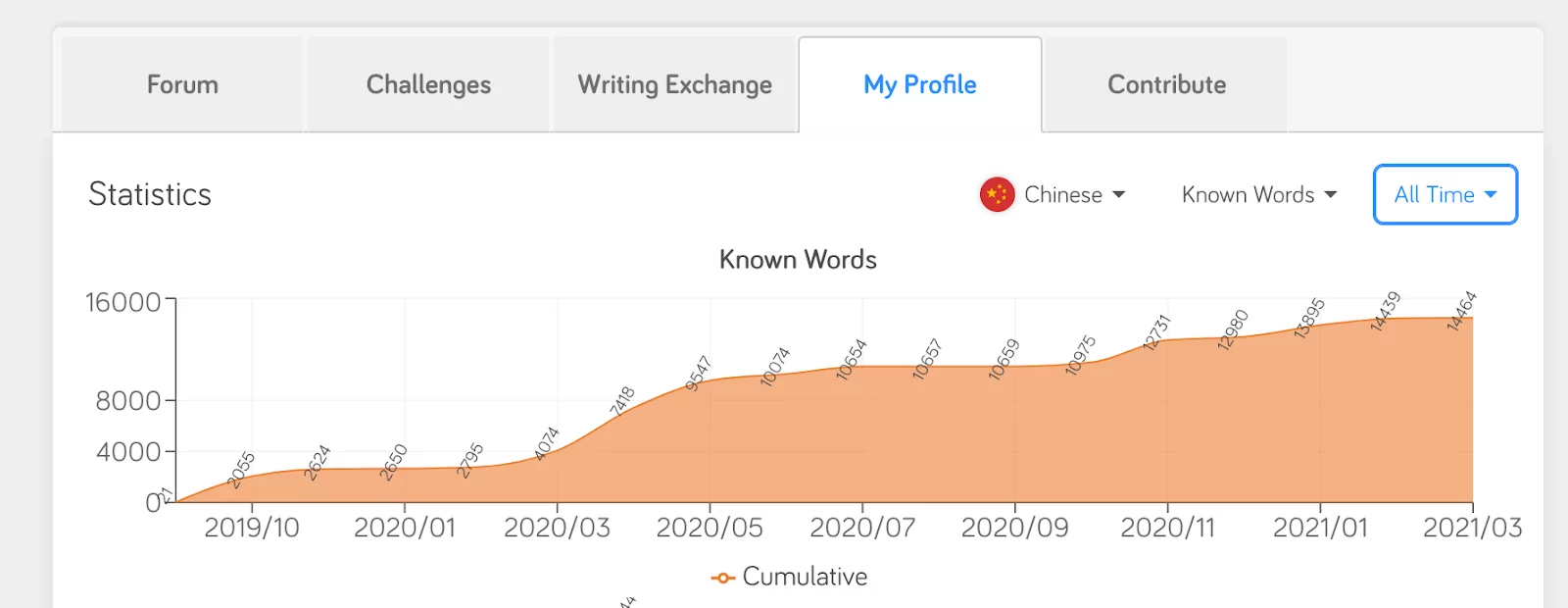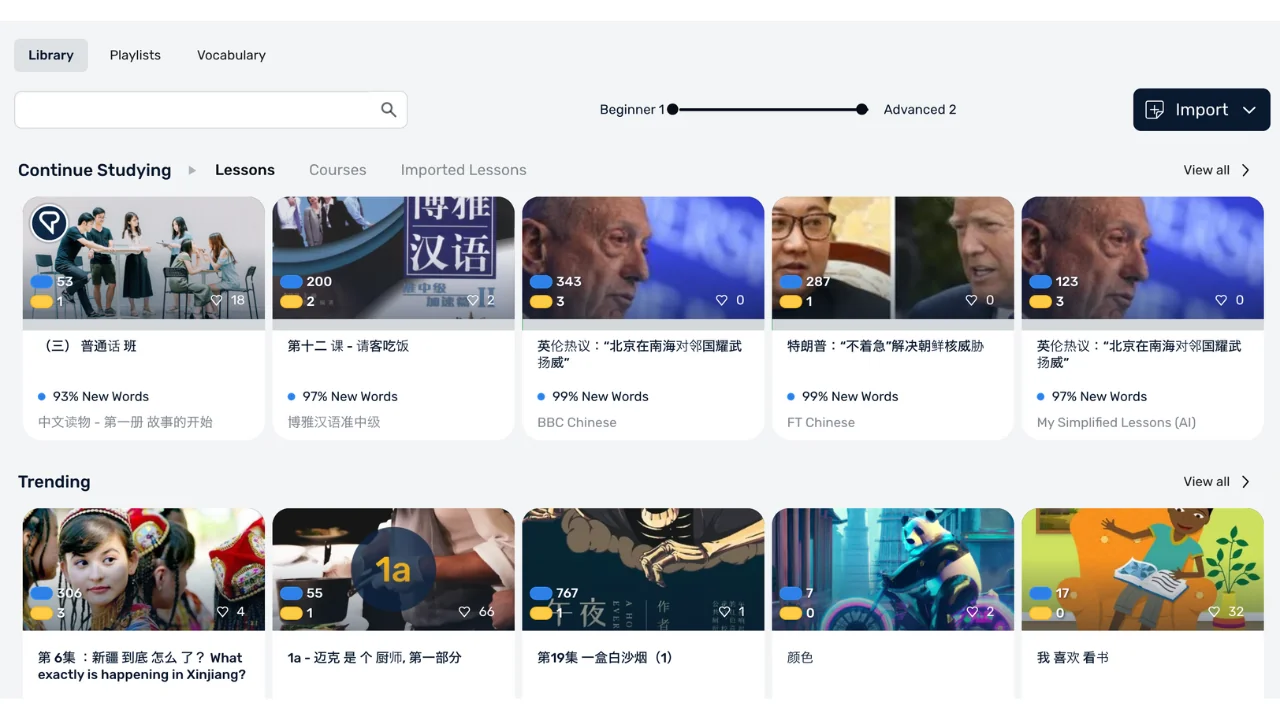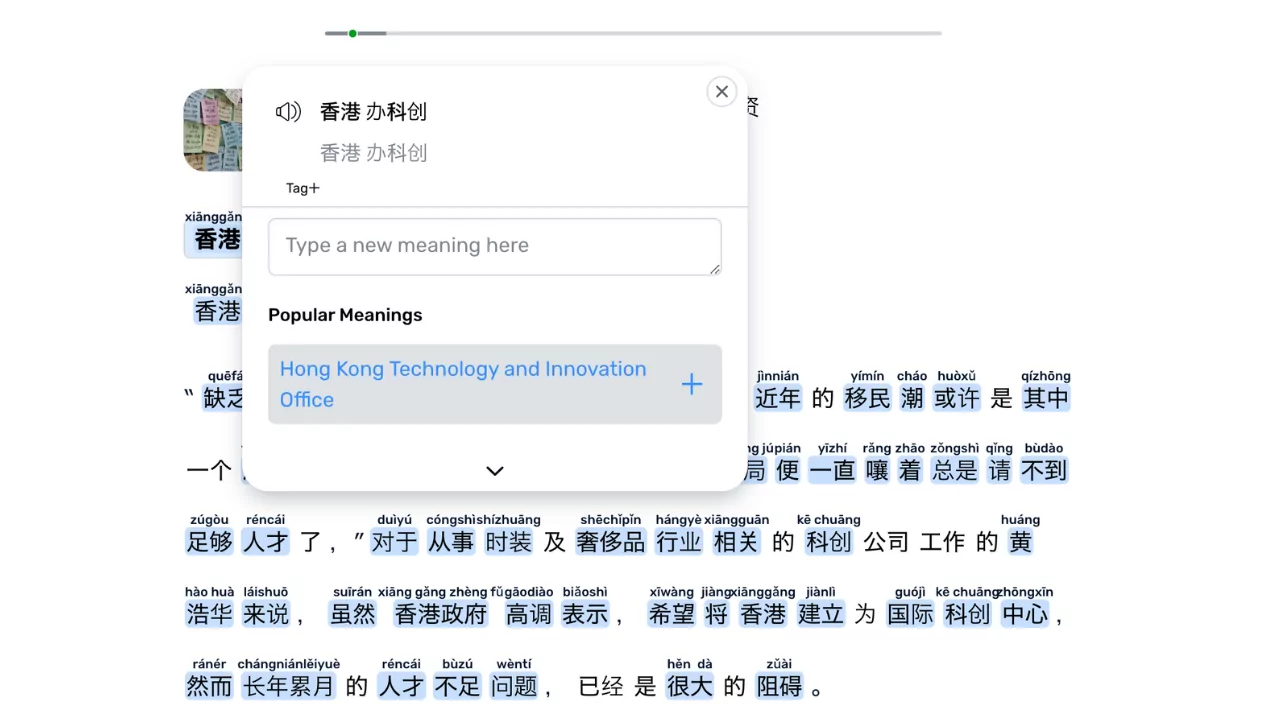How to Learn Chinese Online with LingQ
Since taking up Chinese as a hobby four years ago, I have used numerous different language apps and online resources in an attempt to achieve fluency in the language. Of these I can confidently say that LingQ is the most effective system I have come across and remains the primary tool I use to learn Chinese online.
In the past year and a half I have gone from being able to recognize a few hundred characters to reading several Chinese novels. In this post I will detail how I use the website, including my study methods and resources for listening and reading.
How to Learn Chinese Online with LingQ
I first started using LingQ regularly in Autumn 2019. At that time, my reading ability was at a higher elementary level and I could recognize just under 1000 characters.
Having grown tired of graded readers and textbook materials I wanted to tackle more interesting and authentic material. However, newspaper articles and novels still felt far out of reach. I did a search of ‘Guided Courses’ in the LingQ library to see what materials I could find that were appropriate to my level.
Finding Appropriate Lessons
After checking out a few different Intermediate courses I decided to challenge myself with the Chinese LingQ Podcast.
Each episode involves a conversation around 10 minutes long between two friends called Wolfe and Hua Hua who discuss everyday issues surrounding their lives in Beijing. Although the podcast is recorded for Chinese learners, the pace of the conversations is quite natural and I found it very difficult to follow at first. I would work my way through each episode, reading one transcript page at a time, clicking on unknown words to turn them from blue to yellow, before listening to the corresponding audio for that page.
Once I had finished working my way through each transcript the lessons would automatically save into my playlist and I would listen to them every day when walking to and from work.
Since I found the Chinese LingQ podcast hard work, I supplemented it with some easier lessons in the Intermediate 1 and Beginner 2 categories. The website keeps track of words you do and don’t know as well as the proportion of unknown words within new lessons you’re thinking of tackling.
Typically, I have found that lessons with 10%-20% unknown words are challenging but doable whereas lessons marked at more than 20% unknown words usually exceed my tolerance for pain.
I continued working with these materials for a period of several months and soon got hooked, using the website on a daily basis. Reading Chinese without using a system like LingQ is often a thankless and laborious task. When reading paper books or newspapers it is usually impossible to guess the meaning of a character you don’t know leaving you with no option but to spend minutes looking up unknown characters in a dictionary.
Discovering LingQ meant that for the first time I was able to read intermediate content in a way that didn’t feel like torture while keeping track of my progress.
Importing Native Content
By spending time every day reading interesting content and clicking on unknown words to discover their meaning I was regularly bombarded with new vocabulary and steadily increased my character recognition. Eventually, having worked my way through several courses I felt ready to tackle content targeted at native speakers. To do this I made use of LingQ’s ‘import’ function which allows users to work with content imported from other websites. There are three different ways in which I did this.
The first of these is LingQ’s news library. The news library is located under the lesson feed and includes a regularly updated reel of news articles which can be imported to LingQ from other websites. To import a news article, you click on a title that interests you from the list and it automatically creates a LingQ lesson for you to read.
This feature enabled me to start reading news articles and build vocabulary related to current affairs topics I am interested in. Secondly, I installed the LingQ browser plugin (available for Chrome, Safari and Firefox) through which I was able to import content from other websites. I use this plugin to import content from BBC Chinese, DW Chinese, SBS Mandarin as well as YouTube videos with subtitles. Whenever I come across an article or video which seems interesting but contains lots of unknown words I click on the browser plugin icon and import it into my lessons on LingQ.
A third way of importing content into LingQ is to use the import feature in the top right hand corner of the screen. This allows you to import novels and other content in the form of PDF files. I was able to obtain Ebooks purchased by my friends in China which I then imported into LingQ and read.
In November I finished my first novel, 许三观卖血记(Chronicles of a Blood Merchant) about the life of a man who sells his blood in order to sustain his family living through periods of famine and the turmoils of the cultural revolution. I obtained audio versions for these novels by subscribing to an app called 喜马拉雅(Xi Ma La Ya) which has a huge collection of audiobooks.

Measuring Progress
In addition to providing me with an immersive experience, another invaluable aspect of LingQ is the statistics page which keeps track of your progress.
This page includes a counter for the total number of words you know as well as graphs to show your overall progress over a period of months. According to my LingQ stats I have read over 600,000 Chinese words, know over 14,000 words and have marked words from unknown to known more than 5000 times. Language learning is often accompanied by a feeling that no progress is being made at all. This function has provided me with irrefutable proof that I have been steadily improving.

Of course, statistics are not the only way of measuring progress. If I look back to a time before I discovered LingQ and compare my level then to now I have no doubts the method works. Although I have been learning Chinese on and off for 4 years, I would estimate that more than 90% of my learning has taken place in the last two, since I started using the website.
As I live in the UK, having an alternative system in place that facilitates immersion is vital. LingQ has provided that for me and my only regret is that I didn’t discover it earlier.
Enjoyed this post? Check out polyglot and LingQ cofounder Steve Kaufmann’s blog post for some tips on how to learn Chinese online!
For more content detailing my route to fluency in Mandarin visit my blog: https://imlearningmandarin.com.

Mischa Wilmers is a writer from the UK who has contributed to the Guardian, the Independent, New Internationalist and Deutsche Welle. He is passionate about languages and regularly blogs about his experiences of learning Mandarin to fluency.




